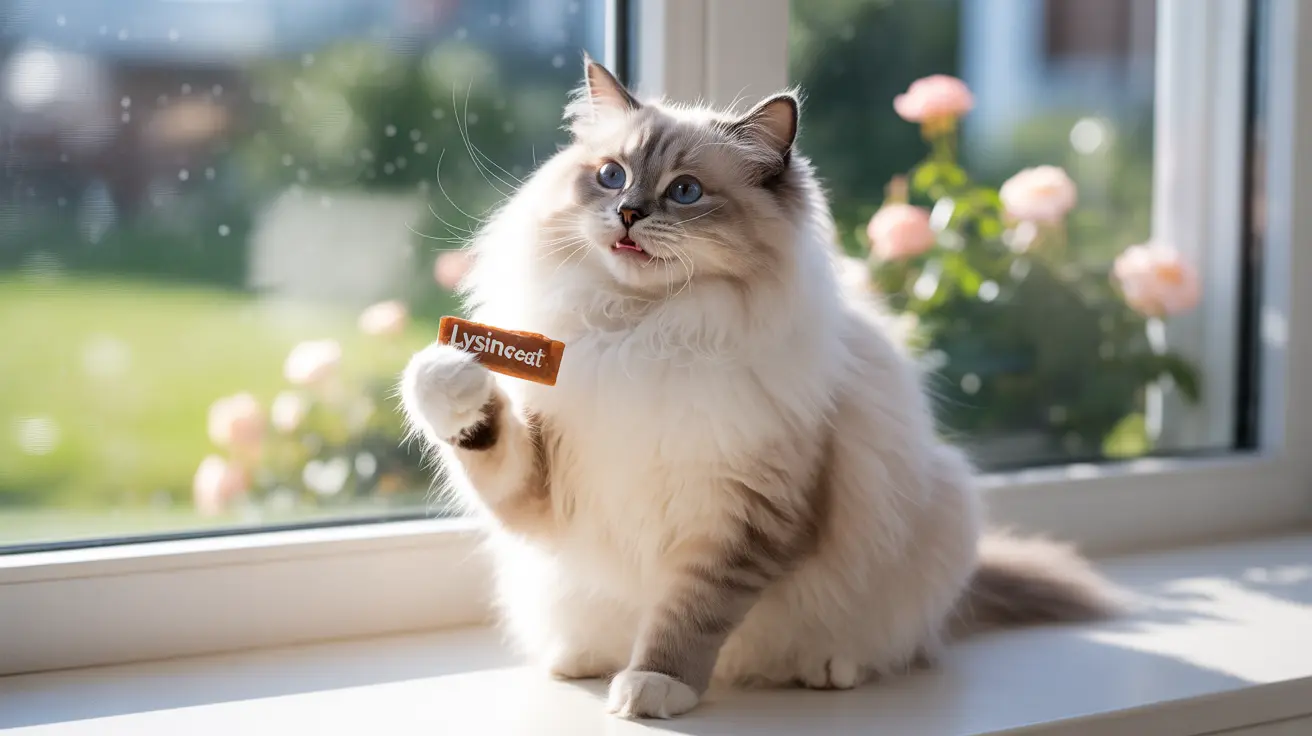Understanding Lysine Treats for Cats
If you're a cat owner dealing with feline respiratory issues or herpesvirus (FHV-1), you've likely heard about lysine treats for cats. These specialized supplements have become increasingly popular as a way to support feline immune health and manage common viral symptoms. Let's explore everything you need to know about these beneficial supplements and how they can help your feline friend.
L-lysine is an essential amino acid that cats cannot produce on their own, making supplementation sometimes necessary, especially for cats with recurring health issues. With up to 90% of cats exposed to feline herpesvirus during their lifetime, understanding these supplements is crucial for responsible pet care.
How Lysine Supplements Work
Lysine treats work by providing additional amounts of this crucial amino acid, which may help inhibit virus replication and boost immune system function. This supplementation can be particularly beneficial during times of stress or when cats show symptoms of respiratory issues.
The primary benefits of lysine supplementation include:
- Reducing the severity of respiratory symptoms
- Supporting overall immune function
- Helping manage recurring viral outbreaks
- Potentially decreasing recovery time from infections
Forms and Administration Options
Lysine treats come in various forms to suit different cats' preferences and needs:
- Flavored chews and treats
- Powder supplements
- Gel formulations
- Liquid supplements
- Crushable tablets
Most products are specially formulated with appealing flavors like chicken, fish, or cheese to ensure cats will readily accept them. This variety allows pet owners to choose the most suitable option for their cat's preferences.
Proper Dosage Guidelines
The recommended dosage varies based on your cat's age and condition:
- Adult cats: 250-500mg daily for maintenance
- Cats with active symptoms: Up to 1000mg daily (divided into two doses)
- Kittens over 12 weeks: 125-250mg daily
Always start with the recommended dose and monitor your cat's response. Consistency is key – regular daily administration typically yields the best results.
Safety and Side Effects
While lysine treats are generally safe for cats, it's important to be aware of potential side effects, which are typically mild and may include:
- Temporary digestive upset
- Decreased appetite
- Occasional vomiting or diarrhea
If you notice any adverse reactions, discontinue use and consult your veterinarian. It's also important to choose high-quality supplements from reputable manufacturers to ensure safety and effectiveness.
Choosing the Right Product
When selecting lysine treats for your cat, consider these factors:
- Quality of ingredients
- Ease of administration
- Your cat's preferences
- Product reputation and reviews
- Manufacturing standards and certifications
Look for products that use pharmaceutical-grade lysine and avoid those with unnecessary artificial additives or preservatives.
Frequently Asked Questions
What are lysine treats for cats used for, and how do they help with feline herpesvirus (FHV-1)?
Lysine treats are used to support immune function and help manage symptoms of feline herpesvirus. They work by potentially inhibiting virus replication and supporting the body's natural immune response, particularly helpful for cats with recurring respiratory issues.
How should I administer lysine treats or supplements to my cat, and what forms do they come in?
Lysine supplements come in various forms including treats, powders, gels, and liquids. You can mix powders with food, offer treats directly, or apply gels to paws for grooming. Choose the form that your cat accepts most readily.
What is the recommended dosage of lysine treats for adult cats and kittens, and how long does it take to see effects?
Adult cats typically need 250-500mg daily, while kittens over 12 weeks require half that amount. Effects may be noticeable within 3-7 days for mild cases, though chronic conditions may take 2-3 weeks to show improvement.
Are lysine treats safe for cats, and what side effects or risks should I watch out for?
Lysine treats are generally safe when used as directed. Monitor for mild side effects like digestive upset or decreased appetite. Discontinue use and consult your vet if any concerning symptoms develop.
Do lysine supplements really work to reduce symptoms of feline respiratory infections and herpesvirus?
While research shows mixed results, many cat owners and veterinarians report positive outcomes, particularly in managing symptoms of respiratory infections and herpesvirus. Individual results may vary, and supplements should be used as part of a comprehensive health care plan.
Conclusion
Lysine treats for cats can be a valuable tool in supporting feline immune health, particularly for cats dealing with respiratory issues or herpesvirus symptoms. While not a cure-all, these supplements, when used properly and consistently, may help manage symptoms and support overall wellness. Always consult with your veterinarian before starting any new supplement regimen to ensure it's appropriate for your cat's specific needs.






